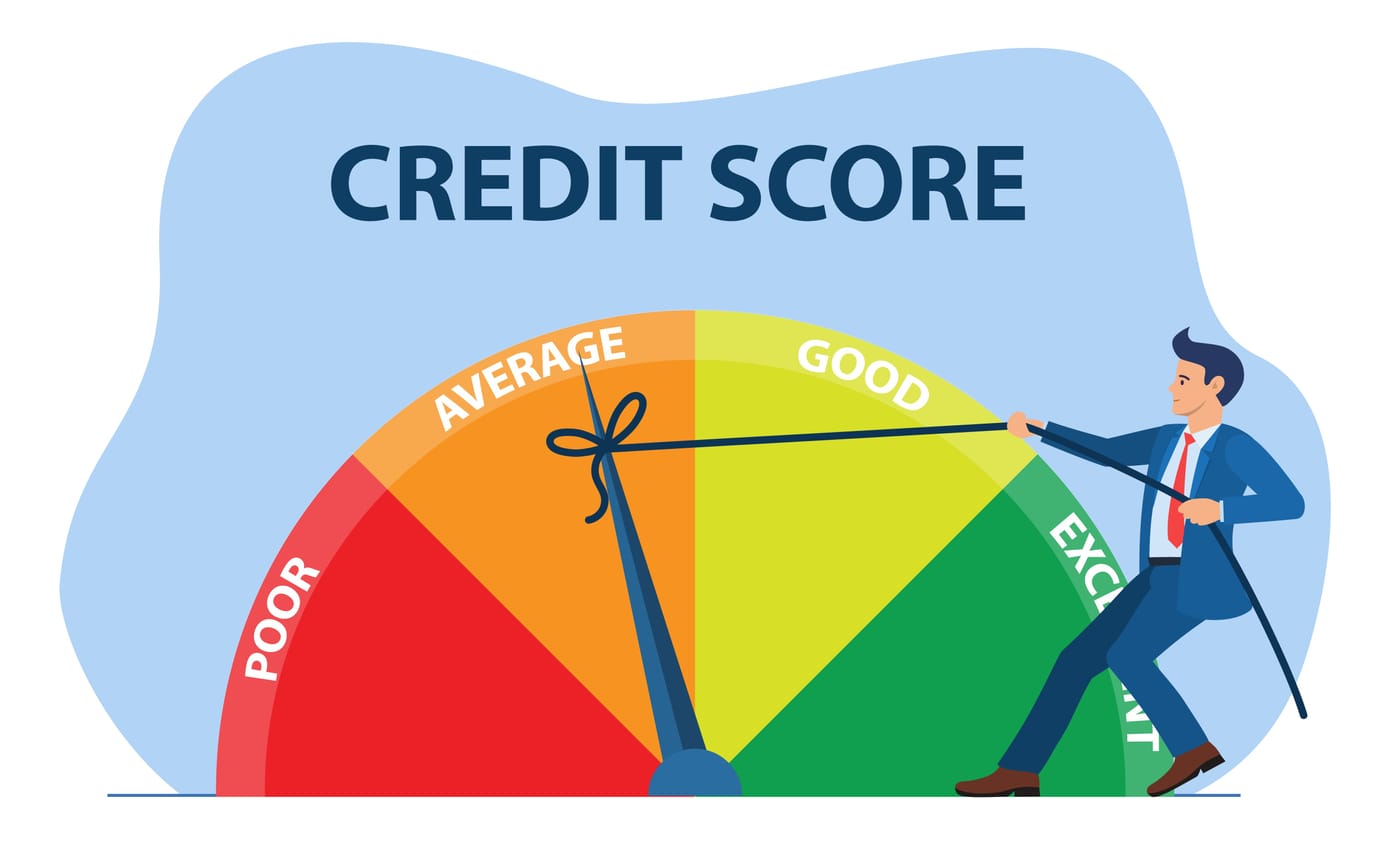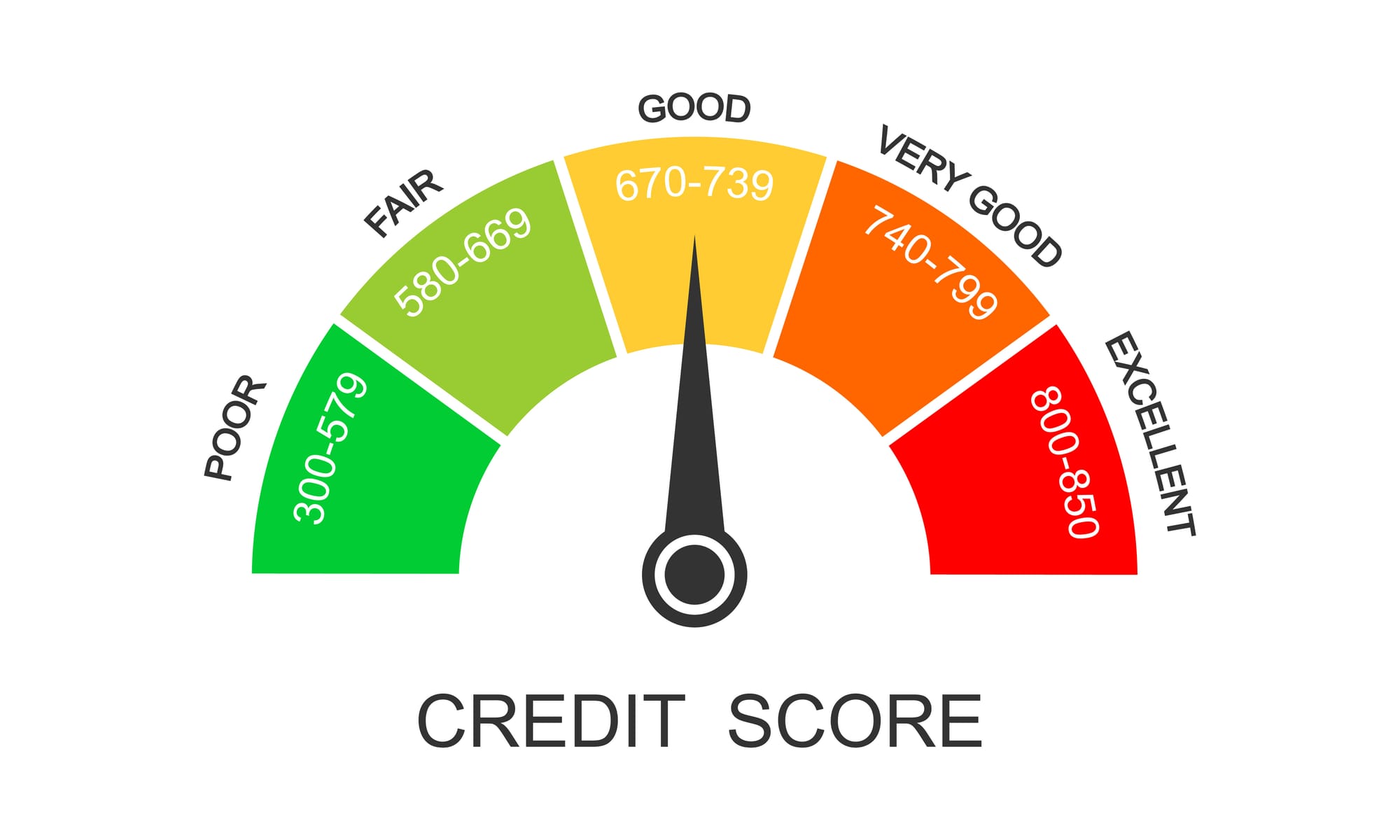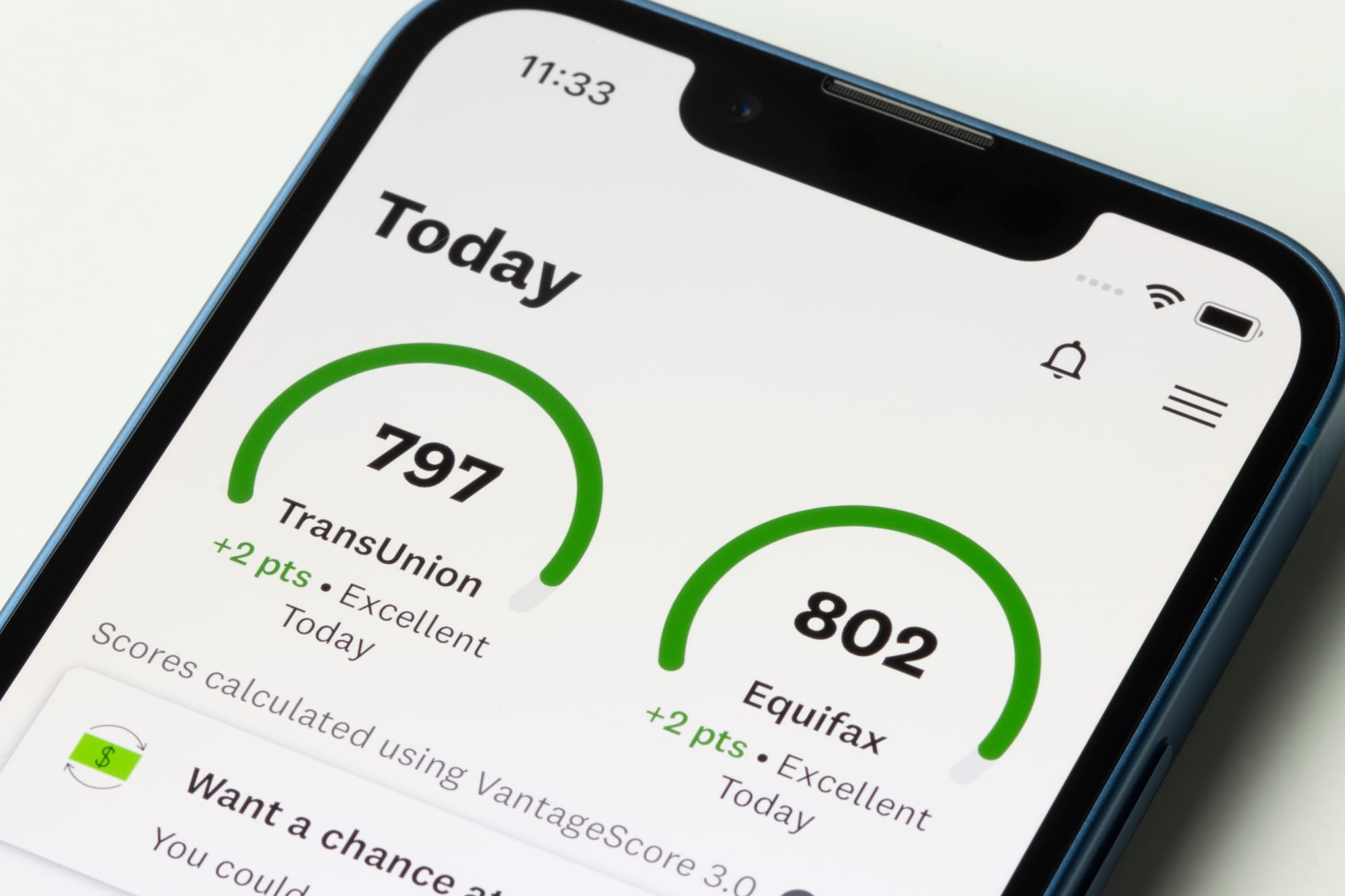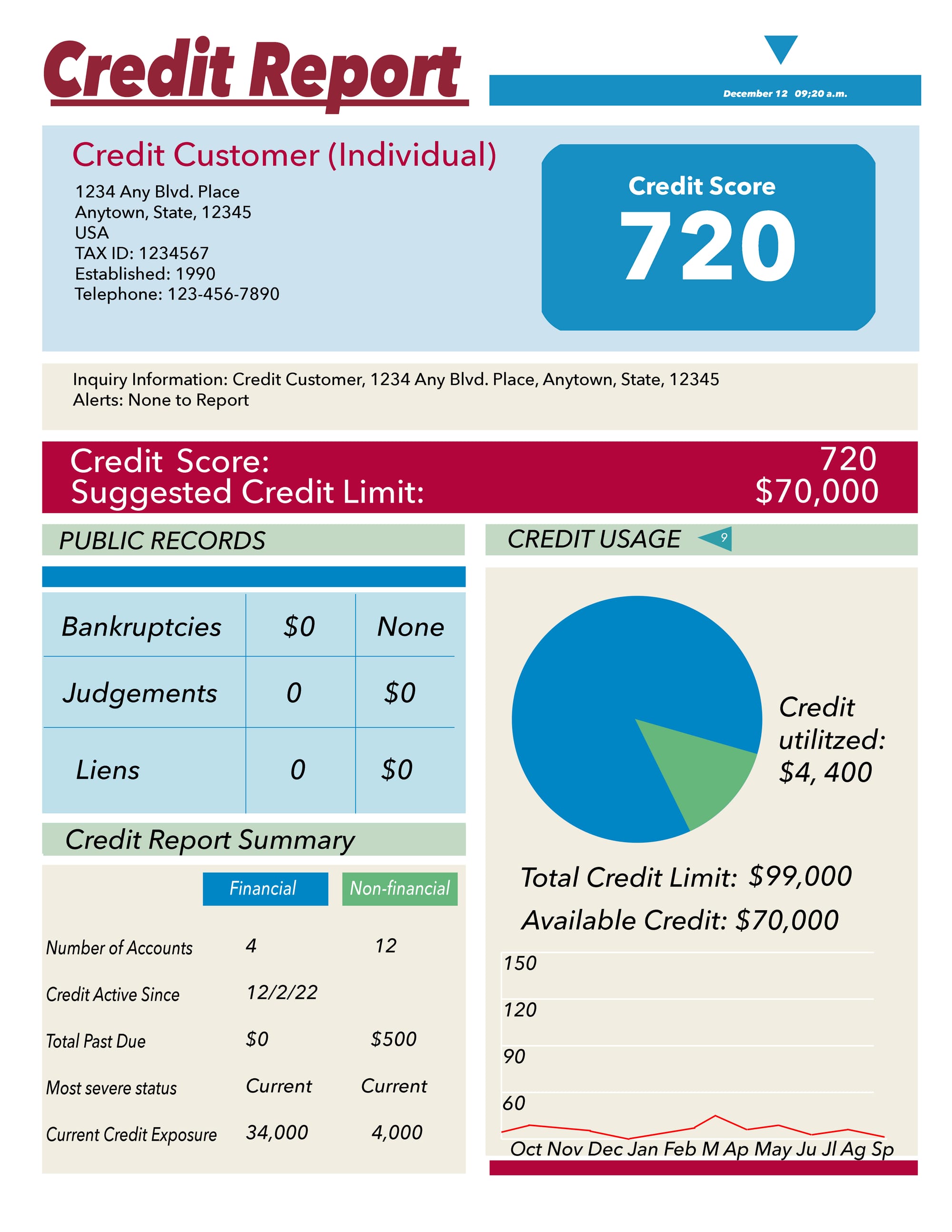
How to Unlock and Maintain a Good Credit Score
Looking to save money on interest, improve your loan approval odds, and simplify your financial life? A strong credit score is the key to unlocking all these benefits—and more!
A good credit score is a powerful asset that enables you to capitalize on the many opportunities society offers while providing easier access to essential resources. In today's world, it's practically indispensable for building wealth and achieving financial success. Fortunately, building a strong credit score is simpler than you might think.
With that said, let's dive into how you can build a robust credit score and unlock a wealth of financial opportunities.
This content is for informational purposes only and should not be considered financial, investment, tax, or legal advice. You should consult a qualified professional before making any financial decisions. Some posts may contain affiliate links, meaning I may earn a commission if you sign up or make a purchase through my links, at no extra cost to you. All recommendations are based on my research and personal experience. Please conduct your own due diligence before making any financial decisions.
What is a credit score?
A credit score is a three-digit number, ranging from 300 to 850, derived from the information in your credit report. It's one of the key factors that financial institutions, lenders, and certain industries consider when deciding whether to do business with you. Your credit score is linked to your Social Security number and calculated based on factors such as payment history, credit mix, length of credit history, and more.

Put simply, your credit score reflects how well you manage your finances. Since it's such a strong measure of your financial trustworthiness, a higher score naturally opens the door to greater benefits and opportunities.
Benefits of a good credit score:
- Lower interest rates on loans, including auto and mortgage financing
- Higher approval odds for credit cards, personal loans, and business loans
- Higher credit limits
- Easier approval for rental applications, including houses and apartments
- Lower insurance premiums
Given the wide array of incredible benefits, the practices for forging and maintaining a strong credit score are remarkably straightforward. Let's break them down in detail.
Practice 1: Make your payments on time
Your payment history has the greatest impact on your credit score, accounting for 35%. As such, making your loan and credit card payments on time is essential, as late payments can severely damage your score.
In addition to making payments on your credit cards and loans, it's important to stay on top of all your other bills. While these payments typically aren't reported on your credit report, unpaid accounts can still be sent to collections.
A collections account is a past-due balance sold to a collections agency, which then attempts to recover the debt. If the agency fails to collect the balance within a certain timeframe, it may report the account as delinquent to the credit bureaus. Delinquent accounts can seriously harm your credit score, so it's crucial to pay all your bills—whether they're reported to the credit bureaus or not.
The easiest way to avoid missed payments is to set up autopay, which automatically ensures your bills are paid on time.
Practice 2: Keep your credit utilization ratio low
Your credit utilization ratio represents the percentage of your total credit limit that is currently in use. As the second most influential factor in your credit score, it accounts for 30%.
To calculate your credit utilization ratio, use the formula:
(Credit used ÷ Total credit limit) × 100
For example, if you have a total credit limit of $10,000 and a balance of $3,000, your utilization ratio is 30%.
In addition to paying down your balance, you can lower your credit utilization by requesting a credit limit increase from your card issuer. If approved, your credit limit will rise, providing greater flexibility in managing your balance.
Keeping your credit utilization below 30% is a widely recommended guideline, but for optimal results, staying under 10% is ideal. Higher utilization, especially beyond 30%, can signal increased credit dependence and negatively impact your score.
Practice 3: Don't close your old credit cards
The length of your credit history, including the average age of your accounts, plays a crucial role in your credit score, accounting for 15%. The older your accounts, the more positively they impact your score.
All accounts listed on your credit report, including loans and credit cards, contribute to your average credit age. It's calculated using the following formula:
(Total age of all accounts) ÷ (Number of accounts)
Closed accounts also contribute to this calculation as long as they remain on your credit report, typically for up to 10 years. Keeping older credit cards open helps maintain a higher average account age, as closed accounts eventually fall off your credit report and no longer contribute to it. Additionally, keeping them open preserves your total credit limit, which helps maintain a lower credit utilization ratio. In contrast, closing them reduces your available credit, which can negatively impact your score.
You don't even need to use your old credit cards regularly for them to contribute to your credit age history. However, issuers may close inactive accounts after extended periods of inactivity. To prevent automatic closure, make a small purchase, such as a $1 charge, every six months to reset the inactivity timer.
Practice 4: Keep your hard inquiries to a minimum
A hard inquiry occurs when a business checks your credit report in response to a credit application, such as for a credit card or auto loan. These inquiries impact your credit score, accounting for 10%.
A single hard inquiry won't have a significant impact on your score. However, multiple hard inquiries within a short period can negatively affect it, as this may be seen as a sign of financial distress or an urgent need for credit.
The exception is when you're rate shopping for a loan, such as an auto or mortgage loan. Most credit scoring models treat multiple hard inquiries for the same type of loan within a short period as a single inquiry, minimizing the impact on your score.
Otherwise, it's best to space out your credit applications—such as for credit cards—since the effects of a hard inquiry fade after one year and completely disappear after two.
How to build your credit history
Getting approved for loans or traditional credit cards can be quite challenging if you have little to no credit history. One of the best ways to overcome this obstacle and start building credit is by applying for a secured credit card.
Secured credit cards require a refundable deposit as collateral, which becomes your credit limit. This structure makes approval much easier than traditional credit cards. Best of all, secured cards report to credit bureaus just like standard credit cards, helping you build and improve your credit profile.
After about 6 to 12 months of on-time payments, you'll typically get your deposit back, and your secured card may graduate to an unsecured credit card. Plus, your secured card's credit history remains intact, allowing you to continue strengthening your credit with your upgraded card.
Here are my top recommendations for secured credit cards:
- Discover IT Secured
- 2% cashback at gas stations and restaurants
- Security deposit starts at $200
- Bank of America Customized Cash Rewards Secured
- 3% cashback in a category of your choice:
- Gas & EV stations, online shopping, cable, internet, phone plans & streaming, dining, travel, drug stores/pharmacies, or home improvement
- Security deposit starts at $200s
- 3% cashback in a category of your choice:
- U.S. Bank Cash+ Secured
- 5% cashback in two categories of your choice:
- Fast food, utilities, TV + internet + streaming, department stores, cell phone providers, electronics stores, sporting goods stores, gyms, ground transportation, movie theaters, furniture stores
- Security deposit starts at $300
- 5% cashback in two categories of your choice:
Any of these cards serve as an excellent stepping stone for establishing and strengthening your credit history.
How to monitor your credit report
Your credit report plays a vital role in your financial health. Regularly reviewing it helps you track your progress and spot any inaccuracies that could be dragging down your credit score.
If you do catch any errors, you can dispute them directly with the credit bureaus. The three major credit bureaus—Experian, TransUnion, and Equifax—each maintain their own credit report on you, which businesses use to assess your creditworthiness.
To monitor your TransUnion and Equifax credit profiles for free, you can sign up for a Credit Karma account. It gives you access to your credit scores and a breakdown of the factors influencing your credit reports, along with real-time notifications of any changes.

For tracking your Experian credit profile, I recommend creating an account on their website. This gives you access to your credit score, insights into the factors affecting your credit report, and instant alerts about any updates.
How to obtain your credit reports for free
Under federal law, you're entitled to one free credit report per week from each major bureau through AnnualCreditReport.com. Your credit report provides a comprehensive breakdown of your credit history, including all your credit accounts, hard inquiries, outstanding debt, and more.

Bottom Line
A strong credit score is one of the most valuable financial tools you can have, offering countless opportunities. Given the significant role credit plays in our financial lives, it only makes sense to maximize its potential.
With a solid credit score, you can even take advantage of 0% interest credit cards. I'll be posting about other ways you can take advantage of a strong credit score soon, so be sure to subscribe to my newsletter to not miss out.
I hope you found this post helpful! I'd love to hear your thoughts—feel free to share them in the comments below.
NewAgeFinance Newsletter
Join the newsletter to receive the latest updates in your inbox.

